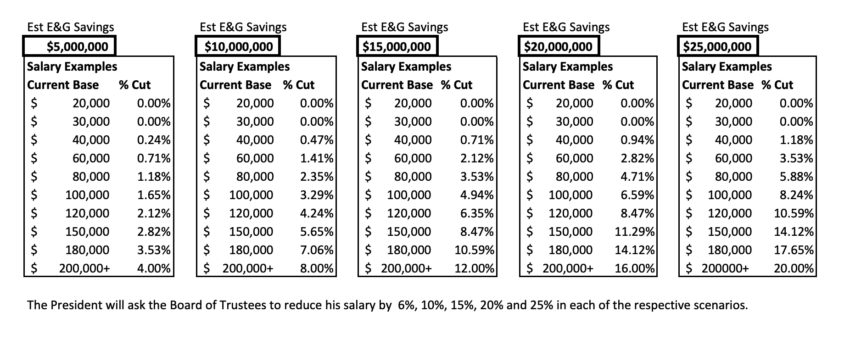Dear Colleague,
Collective bargaining has been suspended since March 11. With so much uncertainty about the state of the university and the academy, neither party felt comfortable resuming bargaining. Over the last week, United Academics and the administration have been working on a deal that would end this round of bargaining uncompleted. We have not yet agreed to a deal, but we wanted to inform you that we are in negotiations. The intent is to reach a deal quickly before the administration carries out their plan to renew Career faculty at just 0.1 FTE. The deadline for renewal notification has been extended to May 8. All members of United Academics will have the opportunity to vote on any deal.
Executive Summary: If we can reach agreement, there would be no across-the-board or merit raise this year, but promotion and post-tenure review raises would still be in effect. The administration would renew almost all non-funding-contingent Career faculty who were above 0.5 FTE this academic year with a contract of at least 0.5 FTE and health insurance benefits for the AY 20-21 academic year. Almost all Career faculty who had appointments below 0.5 FTE would be renewed below 0.5 FTE. Bargaining would start over in January.

